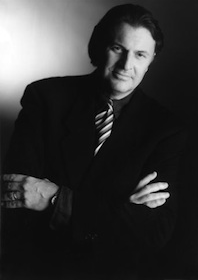Articles and News
THE RECESSION’S OVER, SO WHERE ARE THE NEW LUXURY SHOPPERS? | July 11, 2012 (3 comments)

New York, NY—Is the aspirational luxury buyer dead or just sleeping?
According to luxury expert Gregory Furman, founder and chairman of The Luxury Marketing Council, they’re just sleeping—but they’re sleeping like Rip Van Winkle. In a recent article in Luxury Daily, Furman said those earning between $150,000 and $400,000 per year have largely disappeared as luxury consumers. The Centurion recently caught up with Furman to ask his view about luxury, consumers, and how this affects fine jewelers.
The Centurion: Is the aspirational consumer really gone for good?
Greg Furman: Well, everything that goes around comes around, so when the economy turns around, hopefully we’ll see that customer again. But there are three things that are causing too much uncertainty right now: the economy, the political situation, and global economics and politics. The upper tier hasn’t stopped spending, but the aspirational tier has, and it may be some time before they start again.
Centurion: Is there real affluence among the Millennials? Or are they too young in an economy’s that been too tough, to have any real money yet?
Furman: I think they have more money, more entrepreneurial spirit, and more sophistication than the Boomers did at the same age. Only 10% of Boomers had celebrity or family money; most made their money through hardscrabble work. But the Millennials are entrepreneurial. They’re intellectually wealthy and I think they soon will be very materially wealthy. They also grew up more sophisticated than the Boomers in terms of understanding luxury and the best of the best.
Centurion: Do affluent consumers really ever mature out of the market for luxury products?
Furman: Yes, they do reach a point where it’s not about the stuff [they can buy] it’s about experiences and validating their achievements. American Express describes four stages: acquisitive, inquisitive, authoritative, and meditative. Boomers are in the meditative stage. That’s not to say they don’t appreciate beautiful objects, but it’s about appreciating the craftsmanship and the history, not just about owning the object for status' sake.
Centurion: What will luxury look like to the Millennial customer? How will their tastes and desires differ from Gen X or Boomers?
Furman: That has yet to be defined. They’ll create their own styles, for sure. I don’t know what the answer will be, but it’s going to be different. It’s not going to be what we had, but great stuff is still going to attract them.
Centurion: Are you seeing any direction at all?
Furman: They are going to be more influenced by information online and friends than by authority. Another thing I can see is an inclination to be less formal, but they’re still fascinated with luxury. They’re more sophisticated at a younger age, and have an eye for the best of the best.
One of our Council speakers played a joke on his 16-year-old daughter. He took her to Bergdorf Goodman to the handbag department. He took 12 purses from all the big brands, Prada, Gucci, etc., and lined them up so that they were visible only as silhouettes, no detail. She was still able to identify all 12 bags by silhouette.

Greg Furman
Centurion: A lot of luxury jewelers worry that the Millennial generation doesn’t seem too interested in traditional fine jewelry. Other than bridal jewelry, they don’t seem to care if they’re wearing gold or feathers, as long as it looks funky. How can luxury jewelers reach this audience and get them interested in owning fine jewelry?
Furman: One of the biggest problems I’ve seen with fine jewelers overall is that marketing is still seen as a cost, and it’s the first thing to be cut when times get tight. To me that’s a fundamental issue [that needs to change]. The nature of marketing is changing so rapidly that media is converging into one device and the management of brands has to include an acceleration of the understanding of marketing focus.
Centurion: New research from Accenture shows 64% of consumers don’t plan to return to pre-recession spending habits. After trading down to store or lower-priced brands and finding those to be entirely satisfactory, they’re not going back to more expensive brands. Do you agree?
Furman: People who have the money for luxury will continue to spend. But people are looking for value and the customer is becoming more knowledgeable. If there isn’t an inherent quality in a luxury item that rationalizes the higher price, they’re not going to pay. They will pay for brands that have an inherent quality that sets them apart, but brands that are just about marketing and hype and nothing more will be found out and customers won’t pay for those.
Centurion: What does the loss of the aspirational customer mean for better-middle brands?
Furman: It means they have to market a lot more [to get the same business]. But on the positive side, a lot more luxury customers who may have traded down a few years ago are still mixing high and low. It’s not about a house full of only this brand or that, they’ll mix everything, so they’re more inclined toward less expensive, more casual items to mix in.
Centurion: Who is going to be the new money?
Furman: According to author Robert Frank, it’s going to be Millennial entrepreneurs in technology. It won’t be just West Coast and it won’t be just dot-com, but it will be technology-driven.







